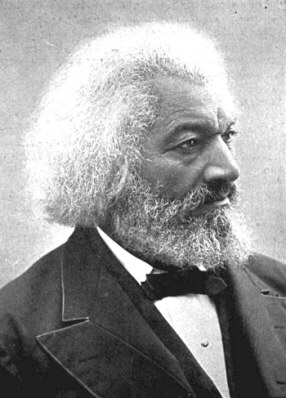
Frederick Douglass on the Ballot Box, the Jury Box, and the Cartridge Box
Found in: The Life and Times of Frederick Douglass: From 1817-1882
Frederick Douglass was born into slavery in Maryland in 1818, escaped in 1838, and became a leader in the movement for the abolition of slavery. After the Civil War ended, he continued to advocate for the political rights of American Blacks.
Colonies, Slavery & Abolition
“From the first I saw no chance of bettering the condition of the freedman, until he should cease to be merely a freedman, and should become a citizen. I insisted that there was no [333] safety for him, nor for anybody else in America, outside the American Government: that to guard, protect, and maintain his liberty, the freedman should have the ballot; that the liberties of the American people were dependent upon the Ballot-box, the Jury-box, and the Cartridge-box, that without these no class of people could live and flourish in this country; and this was now the word for the hour with me, and the word to which the people of the North willingly listened when I spoke. Hence, regarding as I did, the elective franchise as the one great power by which all civil rights are obtained, enjoyed, and maintained under our form of government, and the one without which freedom to any class is delusive if not impossible, I set myself to work with whatever force and energy I possessed to secure this power for the recently emancipated millions.” (FROM: CHAPTER XIII.: VAST CHANGES.)